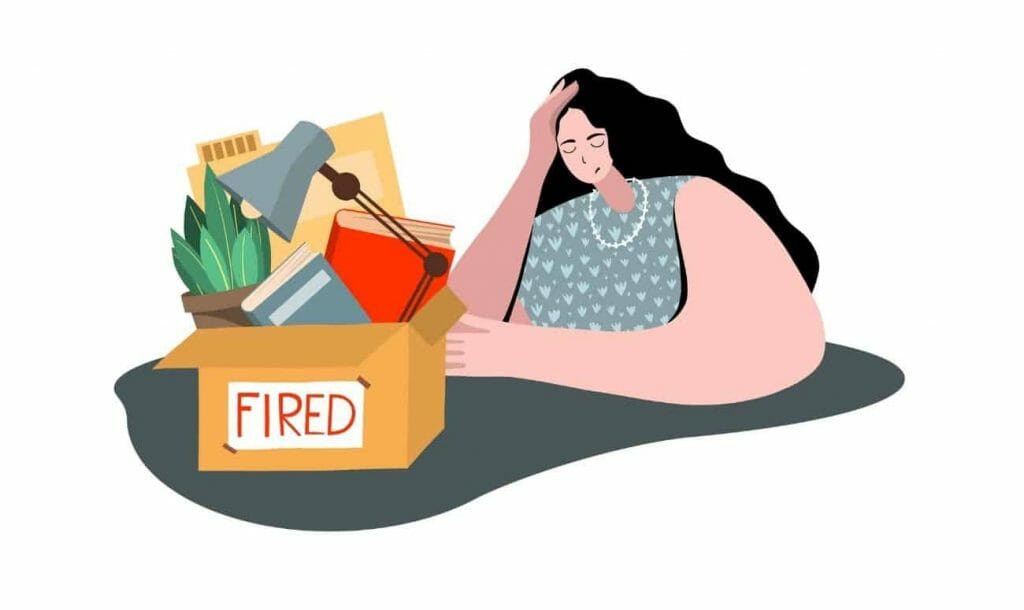When it comes to life, most of us love having a plan. May it be for milestones like education or necessary planning like retirement, financially, we all prefer having a strategy that analyses the risks and profits for us. Unfortunately, we fail to include a major milestone in this plan – a job loss. You may not have thought of a job loss as a milestone but it is.
Losing your job changes your life completely, in terms of income, financial safety as well as priorities. It turns financial management a strict task we have to achieve by hook or crook.
If you’ve lost your job during the pandemic, you’re not alone. 10 million Indians lost jobs during the second wave of Covid-19, leaving 97% of households without income. As of May 2021, the rate of unemployment in India stands at 11.58%. And while the economy is on its way to recovery, experts confirm that it may take at least another two to three years to bring back the jobs lost.
It may seem paralysing to recover from such a shocking situation but it’s imperative that you pick yourself up and start working on a plan that takes into consideration the financial stress you are or will be going through. This plan will also inculcate some sense of stability and free up mental space for you to come up with solutions that are essential for your survival.
So, let’s take a look at 6 necessary steps you must take if you’ve suffered a job loss because of the coronavirus-induced recession.
1. Plan ahead and prepare emergency funds
A rule-of-thumb every individual must, and we stress, MUST follow is to maintain a cushion of three to six months’ worth of finances. They are your savings for a rainy day. They enable you to face an unexpected cost or emergency without being forced to borrow money from elsewhere. We know that this may be difficult for some, those who were already living paycheck-to-paycheck before the pandemic but even if you don’t have enough to sustain you for long, remember that every bit counts. Try and deposit money into a separate fund regularly to ensure that your financial cushion is prepped for an unforeseen emergency. You can also choose to invest in short-term avenues like liquid funds and bank deposits. Avoid investing in equity for short term profits as it’s a major risk.
2. Invest in government schemes
If you’ve lost your job, your first step will be to have enough funds in your account to handle day-to-day expenses of yourself and your family. Investing in government schemes is a great long-term measure for such personal disasters as they help assist you in retirement planning. Schemes like the National Pension Scheme (NPS) and the Public Provident Fund (PPF) allows you to withdraw funds and even loans from your deposited amounts, if the need be.
3. Review your budget
After dipping into your emergency funds, your next step needs to be a review of your monthly budget and expenses. Now is the time to cut back on a few things. Of course, you’ll have to accommodate non-discretionary bills like rent, utilities, groceries and petrol but other expenses that aren’t essential for yours and your family’s survival can be put on hold for now, just as long as this spell of unemployment lasts. Have an honest chat with your family, bring them on the same page in terms of spending and expenses. This way you can manage well and allocate resources to maintain liquidity and improve savings.

4. Don’t tap into your investments
Even though times may seem challenging, avoid dipping into your investments unless the situation absolutely, absolutely calls for it. It takes a lot of time and patience to build savings but hardly any to spend it all. Liquidating investments can change the route for long-term goals like your children’s education or your retirement. Rather, try and overcome financial instability with the help of your spouse or a member of the family, someone who can take over the monetary reigns until the situation improves.
5. Pick up skills for freelancing
Freelancing is a great way to keep yourself afloat after losing our job. A ‘side hustle’ or an alternate source of income is always beneficial and can help you attain financial stability during such trying times. You can easily pick up projects based on your skills and get paid for working on them, all while being productive during your free time. First, start by identifying the skills that you have to offer. Next, create a portfolio that displays your expertise and your past work. There are several freelancing sites that you can register on, with daily as well as monthly projects available. Pick up projects that are suitable for you and try and make the most of it.

6. Be flexible about new opportunities
During a stressful time, like when facing a job loss, we can get carried away by our emotions and end up making disastrous decisions that negatively affect us in the long term. Try and take a step back and review your short-term as well as your long-term goals. Professionals who’ve suffered from job loss can find new ways to broaden their horizon and learn new skills that can help them acquire better jobs. All of this can be a roadmap to success once the disaster subsides, just always try to keep the big picture in mind. There are always occupations and industries looking to hire, you might be presented with an opportunity that could set you up for success.
Your job loss response needs to be twofold; one, to address your expenses and the other is to ensure you have an income. Try and map out your monthly expenses to find the source and ways to cut back. Make a list of what you purchase and what you spend. This can also make it clear if you need to reschedule loan EMIs, insurance premium and investment instalments. You can request your bank to stop EMIs until you find a new job so that you can rest assured you don’t have an added responsibility over a job crisis.
Facing a job loss is a massive hardship that no one wishes upon them, but just by reading this article and gaining some knowledge of the situation, you’ve taken the first step towards recovery. Try to keep your support system close and be emotionally prepared to make the process a little bit easier. Times are tough right now but perseverance can help you come out on top.
If you’d like to cope with the stress of the situation, try this 5-minute meditation.
Read more: Dealing With Criticism As A Highly Sensitive Person
Like & Follow ThinkRight.me on Facebook, Instagram, Twitter, and Telegram to stay connected.






























